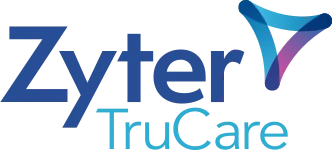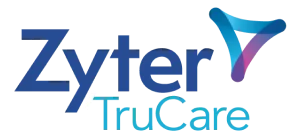As we wrap up another successful 42nd J.P. Morgan Healthcare Conference, Zyter|TruCare takes a moment to assess the wealth of information, compelling presentations, and prevailing themes that made the most significant impact. The event overflowed with innovative content and satellite discussions, serving as a pivotal platform for aligning the healthcare industry’s goals and expectations, particularly advancing AI, automation, and affordability. Our CEO, Kevin Riley, was on the ground at the conference, engaging directly with these evolving trends and bringing back crucial insights to shape our path forward. These reflections are integral to understanding how Zyter|TruCare will navigate challenges and develop leading-edge solutions to thrive in the dynamic healthcare landscape.
AI and Automation: A New Era in Healthtech and Health IT
Integration of AI in Healthtech
- AI’s integration into Health IT systems is transforming healthcare delivery. From improving diagnostic accuracy and patient triage to optimizing administrative processes, AI enhances efficiency and efficacy in healthcare services. This evolution improves patient outcomes and empowers healthcare professionals to make more informed decisions, contributing to a more advanced and patient-centric healthcare landscape.
Automation’s Role in Streamlining Healthcare
- Automation technologies are being increasingly adopted to streamline operations, leading to better patient outcomes and reduced workload for healthcare professionals. Automated care monitoring systems and AI-driven analytics for better decision-making are a top priority for investment. Embracing these technologies represents a commitment to practical innovation to transform patient care outcomes.
Challenges and Opportunities
- While the potential of AI and automation is vast, the healthcare sector needs help in implementation, such as data privacy concerns, robust infrastructure, and equitable access to these technologies. Addressing these challenges presents a unique opportunity for collaborative solutions. Striking a balance between innovation and addressing these challenges is crucial for a sustainable and inclusive healthcare integration of AI and automation.
Affordability: A Central Concern for Providers and Payers
Cost-Effectiveness through Technology
- The conference underscored how AI and automation could deliver more cost-effective healthcare. By reducing manual processes and enabling precision medicine, these technologies can lower healthcare costs while improving patient care. By embracing innovation and adaptability, the industry stands ready to drive positive change—reducing costs, enhancing efficiency, and improving patient care.
Providers Embracing Outpatient Services
- In line with the affordability theme, providers are increasingly focusing on outpatient services, which are typically less expensive than in-hospital care. This shift is supported by technological advancements that allow for effective remote monitoring and telehealth services. As providers embrace this evolution, it signifies a strategic move towards more accessible and cost-effective patient healthcare options (such as in the home). This paradigm shift aligns with a broader commitment to enhancing patient-centric care.
Payers Focusing on Value-Based Care
- Payers are past the tipping point for interest in value-based care models, which emphasize outcomes over service volume. Providers are being promoted to co-create a VBC future with them. AI and automation play a crucial role in this transition by enabling better patient data analysis and outcome prediction, leading to more cost-effective care plans. This strategic adaptation reflects a commitment to delivering higher-quality care while optimizing costs, marking a transformative era in payer-provider relationships.
The Future of Healthcare: Navigating New Technologies
Collaboration Between Tech and Healthcare
- The conference highlighted the importance of collaboration between technology providers and healthcare organizations. Such partnerships are crucial for developing and implementing AI and automation solutions that are tailored to the unique needs of healthcare and regulatory standards. These collaborative efforts signify a shared commitment to advancing healthcare technology that aligns with industry-specific requirements and supports value-based care.
Balancing Innovation with Accessibility
- As healthcare technology advances, a key challenge will be balancing innovation with accessibility. Ensuring that new technologies are affordable and accessible to all population segments is vital for equitable healthcare delivery. This delicate equilibrium is essential to avoid technology-driven disparities in healthcare access.
Regulatory and Ethical Considerations
- Discussions at the conference also addressed the need for clear regulatory frameworks and ethical guidelines to manage the deployment of AI and automation in healthcare, particularly concerning patient data security and privacy. The industry is committed to establishing a robust framework that safeguards patient interests while embracing the benefits of technological advancements.
Looking Forward
The insights gained from the 2024 J.P. Morgan Healthcare Conference profoundly shape Zyter|TruCare’s path in the healthcare industry. Our commitment is to thoughtfully adapt to ongoing technological advancements, seeking to make a powerful impact. Dedicated to fostering an efficient, cost-effective, and equitable healthcare environment, we align our innovations with the broader goals of the healthcare community. Moving forward, our primary focus is continuously enhancing healthcare delivery and outcomes, guided by a deep understanding of the industry’s evolving needs and our unwavering dedication to addressing them.


























